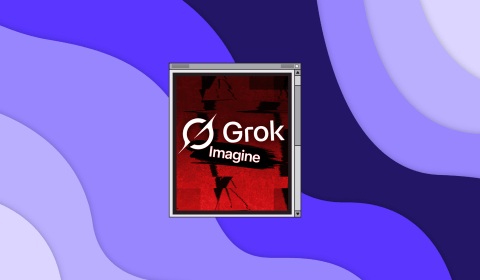it girls, lit girls & emma chamberlain
![]()
Welcome to the latest edition of The Gen Zer. This week, we discuss the fashion brand’s winning relationship with Gen Z, as well as self-compassion amongst young people, our attitude to car culture, and more . . .
Prada’s little sister has been cashing in on the trends before they even happen. Miu Miu, which was founded in 1993 by Miuccia Prada as an offshoot of Prada Group, has always been a younger, less ‘sophisticated’ brand, and in recent times it’s been winning big with Generation Z.
The second quarter of 2024 generally saw a cooldown across the luxury space, with brands like Gucci and Saint Laurent reporting negative growth (-19% and -9%, respectively). Miu Miu, however, grew by 95%.
It’s also repeatedly been ranked by Lyst, the fashion search engine, as the hottest brand in recent times. So what’s behind the growth?
For starters, Miu Miu has struck right into the heart of the zeitgeist with some carefully-chosen collaborations and partnerships. Its sneaker with New Balance was Lyst’s hottest product in the first quarter of this year, and its runways have seen the likes of Mia Goth, Emma Corrin, and Jang Won-young. Olivia Rodrigo wore Miu Miu at last year’s Grammys. Sydney Sweeny sported the brand at this year’s Met Gala. You get the point.
In Asia, the market where the brand has historically performed best (although Europe is now quickly catching up), Miu Miu has partnered with pop stars such as Momo and Minnie as ambassadors, and consistently dresses up-and-coming Chinese musicians and actors like Lexie Liu and Zhao Jinmai.
By dressing some of Gen Z’s favourite celebs, Miu Miu has catered to the aspiration many Gen Zers feel. Despite a cost of living crisis and a so-so job market, Gen Zers have still been spending a lot on luxury for the past few years. It’s a phenomenon some have called treatonomics — the occasional splurging on a few more expensive goods and experiences whilst cutting back elsewhere. And so when Zers see Emma Chamberlain styling Miu Miu and giving off a fun, treat-yourself vibe, they want to own a piece of it too.
View this post on Instagram
Miu Miu’s success with Gen Z is about much more than just collaborations and celebrities, however. Or, rather, it’s about the message all of this gives off. Since its inception, Miu Miu has encapsulated a “youthful energy”; it’s where Miuccia Prada would go to experiment and have fun, without the restrictions that might come with the main brand’s legacy and more controlled ‘look’.
In the past few years Miu Miu has increasingly leant into this playfulness. As more and more Gen Zers flock to the brand, it’s signalled a shift from the minimalist, clean girl aesthetic to a more maximalist and messy look. Miu Miu was brat summer before brat summer was even a thing. (Sorry.)
This “youthful energy” of the brand is what allows it to successfully tap into micro trends, too. Things like ‘librarian chic’, ‘corpcore’ or a more general preppy aesthetic have been growing in fashion in recent times, and Miu Miu’s playful take on cardigans or pleated skirts easily goes along with this, without feeling forced. If an “older brand” tried to be quite so TikTok-cool, it might come across like your parent trying to dress twenty-years younger. For Miu Miu, it’s much more natural, since being inventive and ephemeral is part of the brand’s identity.
View this post on Instagram
The biggest factor for the brand’s Gen Z success, in my opinion, is to do with this narrative that Miu Miu has created around itself. It’s about aspiration rather than particular trendy items or logos. As a brand it doesn’t focus on the person and the type of customer it wants, but rather on their energy and the vibe they aspire to.
When speaking of wearing her brand, Miuccia Prada told of how, “Every single morning, I decide if I’m going to be 15 years old, or a lady near death.” Gen Zers have grown up in a world where questions about individualism and identity seem to be everywhere. We’re more prone to reinvent ourselves, it seems, and to infuse our dreams into the way we live our lives. Miu Miu’s connection with Gen Zers boils down to this — it lets young people dream, and creates a narrative that emboldens rather than stifles.
In other words, it goes for fun over hard rules, inventiveness over stasis. I recently read about how Gen Zers can’t get enough of Miu Miu’s overstuffed bags this summer — it’s basically a staple at the Istituto Marangoni Milano, the School of Fashion in Milan, apparently. What’s different about the bag is that it really taps into the maximalist vibe: it’s big enough to fit your laptop, versatile enough that you can sling it over your shoulder or clutch it unzipped in your hand catwalk-style, and is supposed to be styled in any way you want. Add your own charms, let it overflow with all your things — whatever you want to carry with you.




















